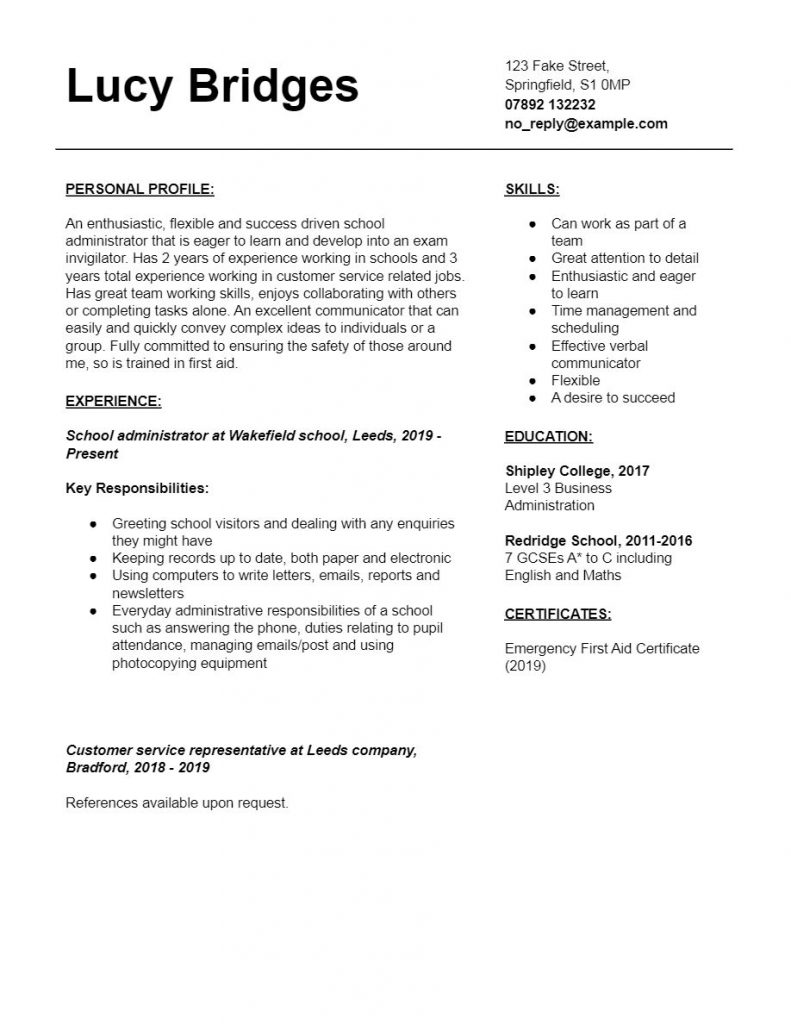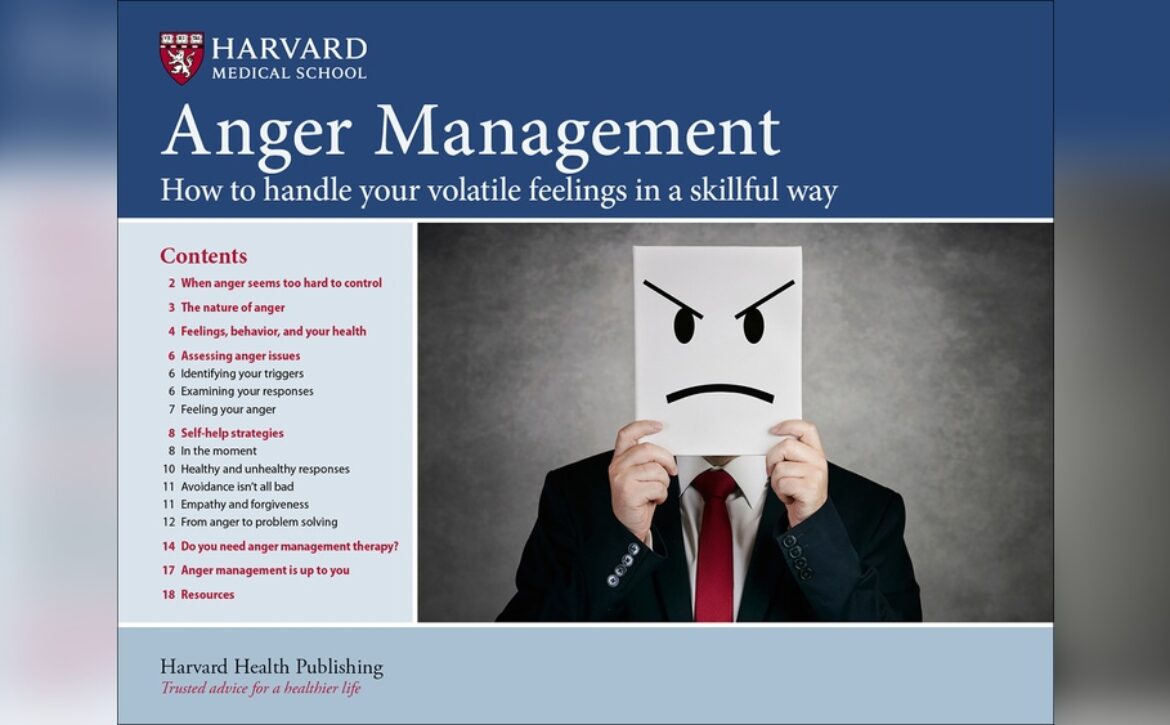
How to Become a Exam Invigilator: Step-by-Step Guide
To become an exam invigilator, follow a few straightforward steps. First, understand the role and responsibilities involved.
Then, apply to institutions offering invigilator positions. Exam invigilators ensure exams run smoothly and fairly. They supervise students during tests and maintain order. Schools, colleges, and universities often need invigilators, especially during peak exam periods. This role suits individuals with strong attention to detail and excellent communication skills.
It offers flexible working hours and can be a rewarding experience. As an invigilator, you help uphold academic integrity and support students during their assessments. Discovering how to pursue this path could open doors to part-time opportunities in educational settings. Let’s explore the steps to become an exam invigilator and what the role entails.

Role Of An Exam Invigilator
Becoming an exam invigilator involves playing a crucial role in the world of educational assessments. An exam invigilator ensures that examination procedures are followed meticulously, maintaining assessment integrity. This role is essential to ensure exam security and fairness for all candidates. Invigilators oversee the exam supervision process, making sure that candidate regulations are adhered to, and test administration runs smoothly. Understanding the responsibilities and required skills will help you excel in this position and contribute significantly to the education sector.
Key Responsibilities
An exam invigilator carries out several important duties. Monitoring exams is a primary task. This involves ensuring that candidates follow examination procedures and adhere to the rules. Exam invigilator duties often include:
- Preparing the examination room according to the guidelines.
- Checking the identity of candidates to prevent impersonation.
- Distributing exam papers and materials correctly.
- Monitoring candidates to prevent cheating.
- Recording any incidents or irregularities during the examination.
Invigilators are responsible for maintaining exam security. They must ensure that all exam materials are collected and accounted for. A detailed checklist is often used to track these procedures:
| Task | Description |
|---|---|
| Room Setup | Arrange seats and materials according to regulations. |
| Identity Check | Verify candidates’ identity against registration records. |
| Material Distribution | Hand out exam papers and necessary tools. |
| Monitoring | Observe candidates to ensure no violations occur. |
| Incident Recording | Note any unusual activities or breaches. |
Required Skills
To excel in exam supervision, certain skills are essential. Invigilator qualifications often include a keen eye for detail and strong organizational abilities. Here are some skills required for effective test administration:
- Attention to Detail: Critical for monitoring exams and ensuring examination procedures are followed.
- Communication Skills: Necessary for explaining candidate regulations clearly and addressing queries.
- Problem-Solving: Useful for handling unexpected situations calmly.
- Integrity: Essential for maintaining assessment integrity and trustworthiness.
- Time Management: Important for ensuring exams start and finish on time.
These skills contribute to effective exam invigilator duties. Possessing these abilities ensures smooth test administration and supports educational assessments positively. Being well-prepared and skilled in these areas makes a significant difference in fulfilling the role successfully.

Qualifications Needed
Becoming an exam invigilator is a rewarding role. It involves monitoring exams and ensuring assessment integrity. To excel in this position, understanding the qualifications needed is crucial. These qualifications help you effectively manage exam procedures, maintain exam security, and support the examination officer. This section explores the educational background and certifications required for aspiring invigilators.
Educational Background
Educational qualifications are important for those aspiring to become exam invigilators. While specific requirements may vary, a general understanding of educational procedures is essential. Most institutions prefer candidates with a minimum of a high school diploma or equivalent. This basic educational level ensures invigilators can read and understand exam instructions clearly. Higher educational qualifications can be beneficial. A background in education, management, or administration can be advantageous for the role. It helps in understanding the broader scope of exam procedures and the importance of maintaining assessment integrity.
- High School Diploma or equivalent
- Education or Administration degrees (preferred but not mandatory)
In some cases, a table outlining specific educational requirements for various institutions can be helpful:
| Institution Type | Educational Requirement |
|---|---|
| High School | High School Diploma |
| University | Bachelor’s Degree (preferred) |
| Private Examination Centers | Varies |
Certifications
Certifications play a significant role in the invigilator requirements. They ensure professional development and preparedness in monitoring exams. Some institutions offer specific invigilator training programs. These programs cover exam security, exam procedures, and the responsibilities of an exam supervisor. Common certifications include:
- Basic Invigilator Training
- Advanced Monitoring Exams Certification
- Assessment Integrity Workshop Participation
Certification courses often provide practical knowledge and skills. These courses prepare you to handle unexpected situations during exams efficiently. They also emphasize the importance of maintaining a fair examination environment. Here’s a brief overview of typical certification courses:
| Certification Name | Duration | Focus Area |
|---|---|---|
| Basic Invigilator Training | 1 day | Exam procedures |
| Advanced Monitoring Exams Certification | 2 days | Exam security |
| Assessment Integrity Workshop | Half-day | Professional development |
Finding Job Opportunities
Becoming an exam invigilator can be a rewarding career choice. It offers the chance to ensure fairness and integrity in testing environments. Understanding how to find job opportunities in this field is crucial for aspiring invigilators. This involves knowing where to search and how to network effectively. Finding the right job opportunities can open doors to a fulfilling part-time exam supervisor role. Let’s explore how you can find these opportunities with ease.
Where To Look
Finding job opportunities as an exam invigilator requires a focused approach. Start by exploring educational institutions hiring invigilators. Schools and universities regularly seek individuals for exam proctoring jobs. They post listings on their official websites under the careers or jobs section. Checking these sites frequently can help you stay updated on available positions. Online job portals are another excellent resource. Websites like Indeed, Glassdoor, and LinkedIn list numerous exam invigilator requirements and job descriptions. Use specific search terms such as “Exam Monitoring Techniques” or “Exam Security Protocols” to narrow down your search results. Consider signing up for alerts on these platforms. This ensures you receive notifications about new listings that match your criteria. Additionally, local community boards or newspapers might advertise part-time exam supervisor roles. It’s worthwhile to keep an eye on them as well.
| Source | Type of Opportunity |
|---|---|
| School Websites | Direct hiring posts |
| Online Job Portals | Variety of listings |
| Local Newspapers | Community-based roles |
Networking Tips
Networking can significantly enhance your chances of securing exam proctoring jobs. Start by connecting with professionals already in the field. Attend workshops or seminars on invigilator training courses. These events are excellent venues to meet experienced invigilators and learn about exam invigilator requirements. Join online forums or social media groups dedicated to exam invigilators. These platforms offer a wealth of information on the responsibilities of an exam invigilator. Engaging in discussions can provide insights into job openings you might not find elsewhere. Consider reaching out to former colleagues or friends working in educational institutions. They can offer valuable information on upcoming vacancies. Building a network of contacts within schools and universities can increase your chances of being recommended for roles.
- Attend workshops and seminars
- Join online invigilator forums
- Connect with educational institution employees
Finally, consider obtaining certification for exam invigilators. It not only enhances your credentials but also expands your professional network. Certification programs often connect you with fellow invigilators and potential employers.
Application Process
Becoming an exam invigilator offers a rewarding opportunity to contribute to the educational process. The application process is straightforward but requires attention to detail. Aspiring invigilators must focus on presenting their qualifications effectively and preparing for the interview process. This role, crucial for maintaining exam integrity, demands a clear understanding of exam supervision and security protocols.
Crafting Your Resume
Creating a compelling resume is essential in showcasing your suitability for Assessment Invigilator Roles. Highlight relevant skills and experiences that align with Invigilation Responsibilities. A well-structured resume can set you apart in the competitive field of exam monitoring. Consider these Resume Tips For Invigilators:
- Include your experience in Educational Assessments, focusing on roles where you ensured exam security.
- List any Certification For Exam Invigilators you have obtained. This demonstrates your commitment to professional development.
- Emphasize skills in Exam Supervision, detailing how you’ve maintained fairness and integrity during tests.
Use clear, concise language in your resume. A table can effectively present your qualifications:
| Qualification | Details |
|---|---|
| Experience in Exam Monitoring | 5 years supervising university exams |
| Certification | Certified Exam Invigilator by National Board |
| Skills | Attention to detail, strong communication, problem-solving |
Preparing For Interviews
Effective interview preparation is key to securing a position as an exam invigilator. Understanding the role’s demands will help you articulate your fit for Invigilator Qualifications. Confidence in your ability to handle Exam Security Protocols will impress potential employers. Follow these Interview Preparation For Exam Invigilators tips:
- Research common invigilator interview questions. Practice responses that highlight your Exam Supervision experience.
- Prepare examples of how you managed challenging situations during Exam Monitoring. This shows your problem-solving skills.
- Dress professionally and arrive early. This demonstrates your commitment and reliability.
Anticipate questions about maintaining fairness and security. Share specific instances where you successfully implemented Exam Security Protocols. Your ability to convey calm and authority in stressful situations will be a significant advantage.
Training And Preparation
Becoming an exam invigilator involves more than just watching over students during a test. It requires a mix of skills, training, and preparation to ensure exams run smoothly and fairly. Understanding the training and preparation needed for this role is crucial. Let’s explore what it takes to become a successful exam invigilator, focusing on the initial training programs and on-the-job training.
Initial Training Programs
Before stepping into the role, invigilators need to undergo initial training programs. These programs equip candidates with the necessary exam monitoring skills and a clear understanding of the invigilator job description. Training for exam supervisors usually covers the following areas:
- Examination Supervision: Learning how to maintain order and ensure a quiet environment.
- Roles and Responsibilities of Invigilators: Understanding duties, from distributing papers to collecting them.
- Certification for Exam Invigilators: Some institutions offer certificates to validate training completion.
- Educational Qualifications for Invigilators: Reviewing the basic academic requirements needed.
Typically, these programs are conducted by educational institutions or examination boards. They might also include workshops or seminars. Here is a basic structure of a typical training program:
| Session | Duration | Content |
|---|---|---|
| Introduction to Invigilation Duties | 2 hours | Theory and guidelines |
| Practical Exam Monitoring Skills | 3 hours | Role-playing and simulations |
| Professional Development for Invigilators | 1 hour | Continuous learning strategies |
On-the-job Training
Once the initial training is complete, invigilators move to on-the-job training. This phase is crucial for gaining real-world experience. During this stage, new invigilators shadow experienced supervisors. They learn how to handle unexpected situations and refine their examination supervision techniques. On-the-job training typically involves:
- Shadowing: Observing seasoned invigilators during live exams.
- Feedback Sessions: Receiving constructive criticism to improve performance.
- Exam Invigilator Requirements Review: Ensuring all criteria are understood and met.
Practical experience helps invigilators develop confidence in managing exam settings. This period also allows them to understand the nuances of invigilation duties. The hands-on approach ensures that they are fully prepared for independent supervision. Additionally, many institutions offer follow-up sessions for further professional development for invigilators. These sessions may include discussions on challenges faced and strategies to overcome them. The combination of initial and on-the-job training ensures that invigilators are well-equipped to perform their roles effectively.

Daily Duties
Becoming an exam invigilator is a rewarding role, offering a unique chance to participate in educational assessments. Daily duties of an invigilator revolve around ensuring the smooth operation of exams, maintaining exam integrity, and supporting students in a calm and organized environment. These duties are crucial for upholding the standards of test administration and assessment security. Below, we delve into the specific responsibilities before and during the exam.
Before The Exam
Preparation is key to effective exam supervision. Invigilators must be well-versed in examination procedures to ensure everything runs smoothly. Here are the primary tasks involved:
- Invigilator Training: Attend training sessions to understand invigilator responsibilities and protocols.
- Room Setup: Ensure the exam room is arranged according to guidelines. This includes adequate spacing between desks and necessary equipment.
- Material Collection: Gather all exam materials such as question papers, answer sheets, and stationery supplies.
- Checklist Review: Verify attendance sheets and seating plans to ensure accuracy.
Before students enter, invigilators should conduct a final check to confirm everything is in order. A table might help visualize these tasks:
| Task | Action |
|---|---|
| Training | Attend sessions |
| Room Setup | Arrange desks and equipment |
| Material Collection | Gather exam papers |
| Checklist Review | Verify attendance and seating |
During The Exam
During the exam, invigilators play a pivotal role in maintaining a serene environment conducive to concentration. The following points outline their core duties:
- Exam Monitoring: Circulate the room to ensure students adhere to exam protocols and prevent any cheating.
- Time Management: Keep track of time and announce intervals to help students manage their time effectively.
- Assistance: Provide help with any logistical issues. For example, replacing faulty equipment or clarifying procedural queries.
- Documentation: Record any incidents or irregularities that occur for future reference.
Invigilators must remain vigilant and approachable, ready to address any concerns swiftly. Their presence ensures exam integrity and supports test administration processes.
Challenges Faced
Becoming an exam invigilator is a rewarding yet challenging role. It demands attention to detail and patience. Challenges faced can range from managing disruptions to handling stress. Each day in this role can bring unique situations that require calm and effective solutions. Understanding the challenges can help prepare you for the demands of this crucial position.
Dealing With Disruptions
Invigilators often face disruptions during exams. Whether it’s a sudden noise or a candidate’s unexpected behavior, maintaining a calm exam environment is crucial. Here are a few common disruptions and how to handle them:
- Noise Disturbances: External noises can distract candidates. Ensure windows are closed and noise levels are monitored.
- Candidate Behavior Monitoring: Some candidates may talk or disturb others. A gentle reminder of examination rules usually resolves this.
- Technical Issues: Equipment failures can occur. Have a backup plan ready, such as spare devices or printed materials.
Invigilators must be adept at Conflict Resolution In Exams. Addressing conflicts swiftly helps maintain exam integrity and security. Here’s a simple approach:
| Situation | Action |
|---|---|
| Candidate argument | Separate candidates and address concerns individually |
| Rule violation | Remind candidates of exam supervision rules |
Effective Exam Environment Management ensures disruptions are minimal. Preparation and vigilance are key.
Managing Stress
Stress is a common part of invigilation duties. Managing it effectively is essential for a smooth exam process. Here are some stress management techniques:
- Preparation: Understand the Test Administration process thoroughly. Familiarity reduces anxiety.
- Stay Organized: Keep all necessary materials and information at hand. This ensures quick access and reduces panic.
- Take Breaks: If possible, take short breaks to clear your mind and relax.
During exams, stress levels can rise due to unpredictable situations. Practicing deep breathing or mindfulness can help. These techniques aid in keeping calm and maintaining focus. Managing stress also involves understanding the importance of your role in maintaining Exam Integrity And Security. An invigilator’s calm demeanor positively impacts the exam atmosphere. Candidates feel more at ease, leading to better performance and less tension. Remember, a well-managed stress level leads to more effective Exam Proctoring and a successful examination process.
Career Advancement
Becoming an exam invigilator can be a fulfilling career choice. It offers a unique opportunity to engage in the educational field. It requires attention to detail and a sense of responsibility. As you gain experience, there are several avenues for career advancement. This role is not just about supervising exams. It can be a stepping stone to various other job opportunities in exam supervision. Understanding the potential for growth in this field is essential for anyone considering a career as an exam invigilator.
Further Opportunities
As an exam invigilator, various further opportunities await. With experience, you might explore roles in exam coordination or administration. These roles often involve more responsibilities of exam invigilators. They include organizing test schedules and managing exam logistics. For those with a knack for organization, exam coordinator roles can be appealing. Here, the focus shifts from invigilation to overseeing the entire exam invigilation process. This position often requires strong leadership skills and the ability to work with diverse teams. Below are some potential career paths:
- Exam Coordinator
- Test Proctor Supervisor
- Exam Administration Officer
Educational qualifications for invigilators play a role in career advancement. Those with higher qualifications may find it easier to transition into these roles. The table below illustrates typical qualifications and the associated roles:
| Qualification | Potential Role |
|---|---|
| High School Diploma | Exam Invigilator |
| Associate Degree | Test Proctor |
| Bachelor’s Degree | Exam Coordinator |
Professional Development
Professional development is key in the exam monitoring jobs. Continuous learning enhances your qualifications for invigilators. Training for exam invigilators is often provided by educational institutions or examination boards. Engaging in such training can improve your understanding of the exam invigilation process. Participating in workshops and seminars can also be beneficial. They cover various aspects such as stress management, effective communication, and ethical practices. These skills are crucial for an exam supervisor. They ensure a fair and smooth examination process. Consider these professional development options:
- Attend Invigilator Training Sessions
- Join Professional Networks
- Participate in Educational Workshops
Networking with other professionals in the field can open doors to new job opportunities in exam supervision. It allows you to share experiences and learn best practices. This enhances your career as an exam invigilator.
Frequently Asked Questions
What Qualifications Do I Need To Be An Exam Invigilator?
To become an exam invigilator, you typically need a high school diploma. Strong organizational skills and attention to detail are essential. Some institutions may require prior experience in educational settings. Training is often provided on the job to ensure familiarity with exam protocols and procedures.
How Do I Apply For Invigilator Jobs?
To apply, start by checking job listings on educational institution websites. Tailor your resume to highlight relevant skills and experience. You can also register with recruitment agencies that specialize in educational roles. Networking with schools and universities can also uncover opportunities.
What Are The Duties Of An Exam Invigilator?
An exam invigilator ensures exams run smoothly and fairly. Duties include setting up the exam room, distributing papers, and monitoring students. They must enforce exam rules and handle any incidents. Invigilators also collect and secure completed exam scripts for grading.
How Much Do Exam Invigilators Get Paid?
Exam invigilator pay varies based on location and institution. Hourly rates typically range from $10 to $20. Some institutions offer higher rates for invigilators with extensive experience. Pay can also depend on the exam level and duration, with longer exams often paying more.
Conclusion
Embarking on the journey of becoming an exam invigilator is rewarding. You ensure exams run smoothly and fairly. This role demands attention and reliability. Schools and institutions value these qualities highly. The process is simple but requires dedication. Once qualified, you gain valuable experience.
This can open doors to other educational roles. Start your path today. Embrace the opportunity to support students. Your role as an invigilator makes a difference. It contributes to a fair and stress-free exam environment. A role that shapes futures.




